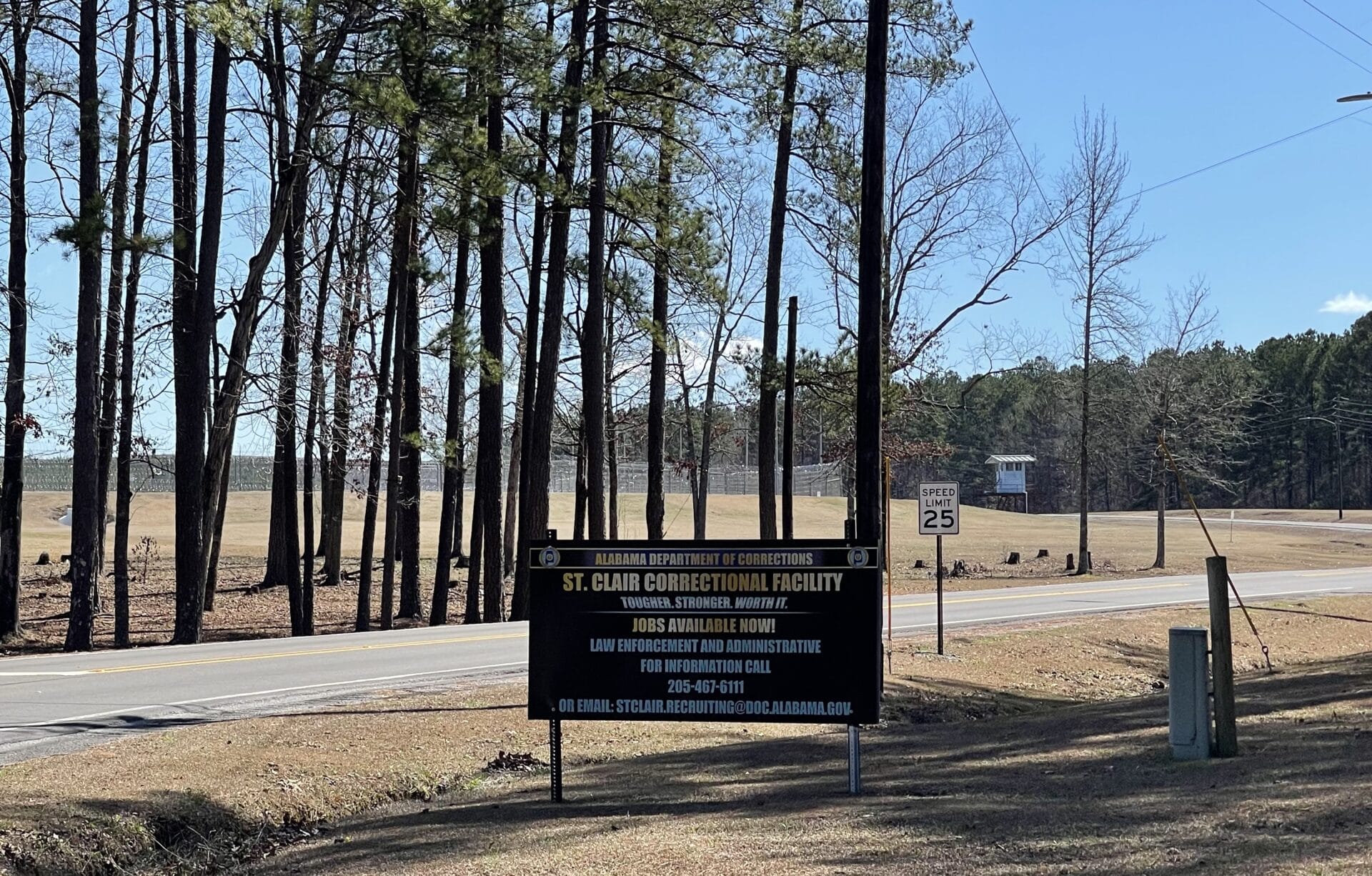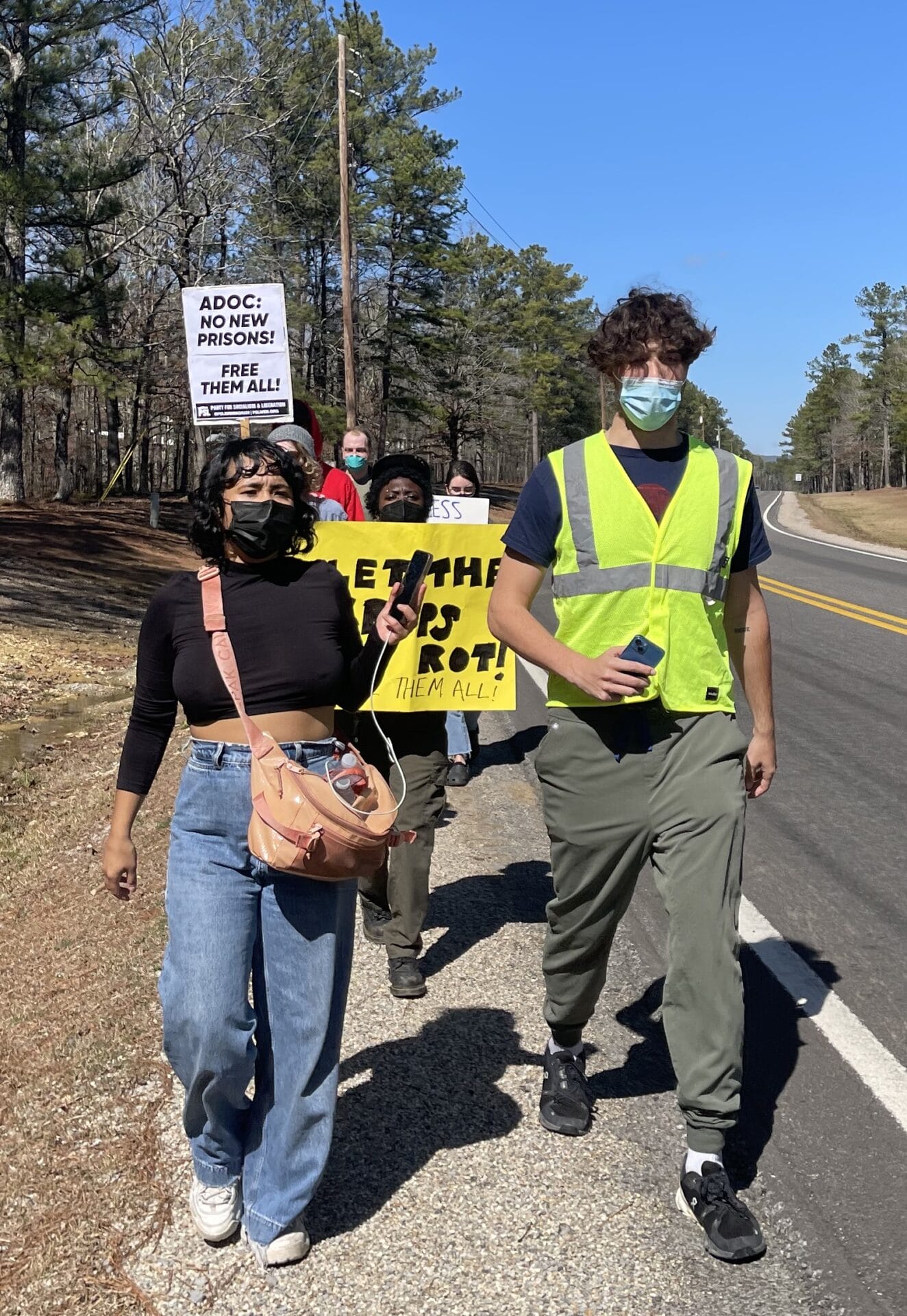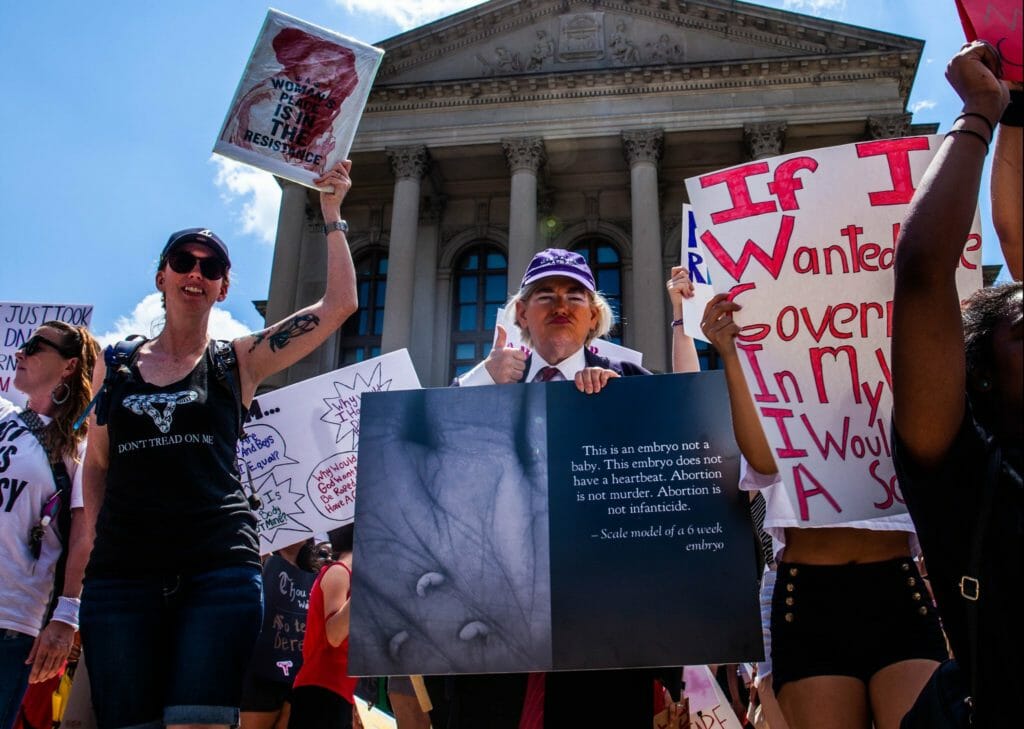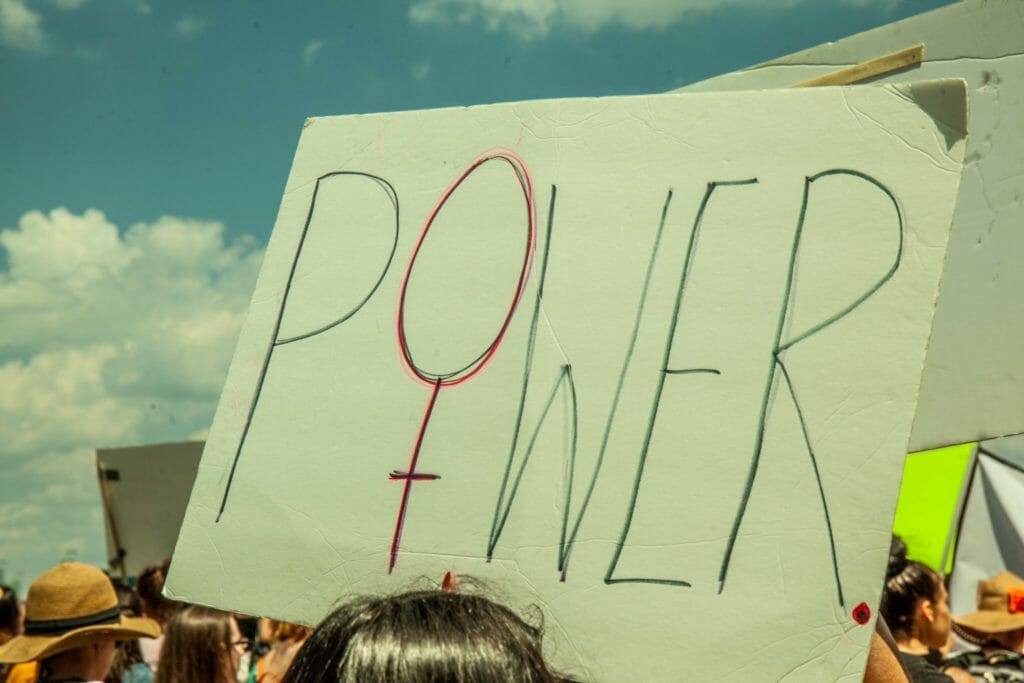Free Alabama Movement organizers say they refuse to “finance their own incarceration and exploitation of gas chamber style executions, forced labor, and deadly abuse”

SPRINGVILLE, AL.—This afternoon, around eight people arrived outside of St. Clair Prison in Springville, Ala., in support of incarcerated organizers who have been protesting state prison forced labor and other inhumane conditions since Feb. 6.
The prison shutdown—which is a work stoppage and boycott by incarcerated people who refuse to finance their own incarceration and exploitation—is being led by the Free Alabama Movement (FAM), a local organization of incarcerated people that led the largest national prison shutdown in history in 2016.
Protesters inside are joined by the Tennessee Student Solidarity Network (TSSN) and other organizations across the Southeast, who say they are “standing in solidarity with the prison shutdown” led by incarcerated organizers, who are “fighting a corrupt system where they are ‘leased’ to companies as commodities by the Alabama Department of Corrections (ADOC).” Organizers also say they experience cruel and deadly abuse regularly while in custody, especially when they try to refuse labor.
“We are here because the South has woken up and realized that the prison struggle is our fight,” wrote the Tennessee Student Solidarity Network, a youth-led organization aiming to develop working class youth as longterm political workers, in an official press statement. “The corporations who are profiting from endless wars, killing Palestinians abroad, and destroying the earth are the same corporations—from Raytheon to McDonald’s—profiting from the exploitation of incarcerated people.”
TSSN is incubated by A Luta Sigue, a Tennessee-based movement incubator dedicated to “supporting the development of autonomous power-building projects and campaigns led by working-class leaders and youth.”
Background on Alabama’s prison system
Alabama prisons are among the deadliest and most crowded in the country. In 2022, a total of 274 people died while incarcerated in the state’s prison system—the most in the state’s history. According to ADOC’s quarterly reports, nearly a third of those deaths (86 out of 274 or 31%) were due to homicide, suicide, or overdose. However, ADOC still has not reported the cause of death for many of those who died in custody in 2022.
Alabama prisons also have the highest inmate mortality rates in the country at five times greater than the national average.
In 2020, ADOC was sued by the U.S. Department of Justice for violating the rights of incarcerated people, who are constitutionally protected against cruel and unusual punishment. According to the DOJ, the lawsuit is a result of a multi-year investigation into allegations of constitutional violations within Alabama’s prisons for men.
According to the non-profit and non-partisan think tank Prison Policy Initiative, Alabama has an incarceration rate of 938 per 100,000 people, meaning it locks up a “higher percentage of its people than any other democratic country on earth.” Fifty-three percent of Alabama’s prison population is Black, while Black people only account for 26% of the state’s residency population, according to the institute’s data.
“ADOC is notoriously anti-Black, and frequently exploits the Habitual Offender Act to keep Black people in prison,” wrote the Tennessee Student Solidarity Network in an official press release about the ongoing protests against Alabama’s prisons. “Incarcerated people are forced to labor in deadly conditions to make profits for ADOC and big corporations (including one-third of defense contractors), experiencing beatings, rape, and deadly repression if they try to refuse.”
Alabama’s system of “cruel and unusual punishment” and prison labor
Alabama’s 13 maximum security prisons for men have been under unparalleled investigation by the federal government since 2016. Those inside say that horrific conditions include “overcrowding, neglect, abuse, and a drug epidemic” that has been compounded by the state’s “broken parole system creates.”
In December 2023, national labor unions with the support of AFL-CIO sued the State of Alabama, ADOC, the Alabama parole board, and private corporations, claiming they were colluding to uphold a system of “modern-day slavery” that made ADOC $450 million in profits annually. According to the complaint, plaintiffs have been “trapped in a system of ‘convict leasing’ in which incarcerated people are forced to work, often for little or no money” while living in a “constant danger of being murdered, stabbed, or raped.”
Since 2018, about 575 companies and more than 100 public agencies in Alabama have used incarcerated people as landscapers, janitors, drivers, metal fabricators, and fast-food workers.
What FAM organizers are demanding
According to organizers’ press release, “incarcerated people in Alabama are organizing under unimaginable conditions, risking their lives for the chance to meet the following demands: the repeal of the habitual offender act; make sentencing guidelines retroactive; create mandatory parole criteria that the board must follow; abolish the sentence of life without parole; end all gas chamber executions.”




